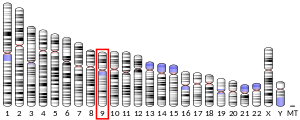RNF20
Protein-coding gene in the species Homo sapiens
| RNF20 | |||||||||||||||||||||||||||||||||||||||||||||||||||
|---|---|---|---|---|---|---|---|---|---|---|---|---|---|---|---|---|---|---|---|---|---|---|---|---|---|---|---|---|---|---|---|---|---|---|---|---|---|---|---|---|---|---|---|---|---|---|---|---|---|---|---|
| Identifiers | |||||||||||||||||||||||||||||||||||||||||||||||||||
| Aliases | RNF20, BRE1, BRE1A, hBRE1, ring finger protein 20 | ||||||||||||||||||||||||||||||||||||||||||||||||||
| External IDs | OMIM: 607699; MGI: 1925927; HomoloGene: 5571; GeneCards: RNF20; OMA:RNF20 - orthologs | ||||||||||||||||||||||||||||||||||||||||||||||||||
| |||||||||||||||||||||||||||||||||||||||||||||||||||
| |||||||||||||||||||||||||||||||||||||||||||||||||||
| |||||||||||||||||||||||||||||||||||||||||||||||||||
| |||||||||||||||||||||||||||||||||||||||||||||||||||
| |||||||||||||||||||||||||||||||||||||||||||||||||||
| Wikidata | |||||||||||||||||||||||||||||||||||||||||||||||||||
| |||||||||||||||||||||||||||||||||||||||||||||||||||
E3 ubiquitin-protein ligase BRE1A is an enzyme that in humans is encoded by the RNF20 gene.[5][6][7][8][9]
The protein encoded by this gene shares similarity with BRE1 of S. cerevisiae. Yeast BRE1 is a ubiquitin ligase required for the ubiquitination of histone H2B and the methylation of histone H3.[9]
See also
References
- ^ a b c GRCh38: Ensembl release 89: ENSG00000155827 – Ensembl, May 2017
- ^ a b c GRCm38: Ensembl release 89: ENSMUSG00000028309 – Ensembl, May 2017
- ^ "Human PubMed Reference:". National Center for Biotechnology Information, U.S. National Library of Medicine.
- ^ "Mouse PubMed Reference:". National Center for Biotechnology Information, U.S. National Library of Medicine.
- ^ Kim J, Hake SB, Roeder RG (Dec 2005). "The human homolog of yeast BRE1 functions as a transcriptional coactivator through direct activator interactions". Mol Cell. 20 (5): 759–70. doi:10.1016/j.molcel.2005.11.012. PMID 16337599.
- ^ Wood A, Schneider J, Dover J, Johnston M, Shilatifard A (Sep 2003). "The Paf1 complex is essential for histone monoubiquitination by the Rad6-Bre1 complex, which signals for histone methylation by COMPASS and Dot1p". J Biol Chem. 278 (37): 34739–42. doi:10.1074/jbc.C300269200. PMID 12876294.
- ^ Shema E, Tirosh I, Aylon Y, Huang J, Ye C, Moskovits N, Raver-Shapira N, Minsky N, Pirngruber J, Tarcic G, Hublarova P, Moyal L, Gana-Weisz M, Shiloh Y, Yarden Y, Johnsen SA, Vojtesek B, Berger SL, Oren M (Oct 2008). "The histone H2B-specific ubiquitin ligase RNF20/hBRE1 acts as a putative tumor suppressor through selective regulation of gene expression". Genes Dev. 22 (19): 2664–76. doi:10.1101/gad.1703008. PMC 2559905. PMID 18832071.
- ^ Liu Z, Oh SM, Okada M, Liu X, Cheng D, Peng J, Brat DJ, Sun SY, Zhou W, Gu W, Ye K (Feb 2009). "Human BRE1 is an E3 ubiquitin ligase for Ebp1 tumor suppressor". Mol Biol Cell. 20 (3): 757–68. doi:10.1091/mbc.E08-09-0983. PMC 2633391. PMID 19037095.
- ^ a b "Entrez Gene: RNF20 ring finger protein 20".
Further reading
- Lossos IS, Alizadeh AA, Eisen MB, et al. (2000). "Ongoing immunoglobulin somatic mutation in germinal center B cell-like but not in activated B cell-like diffuse large cell lymphomas". Proc. Natl. Acad. Sci. U.S.A. 97 (18): 10209–13. Bibcode:2000PNAS...9710209L. doi:10.1073/pnas.180316097. PMC 27813. PMID 10954754.
- Slachta CA, Jeevanandam V, Goldman B, et al. (2000). "Coronary arteries from human cardiac allografts with chronic rejection contain oligoclonal T cells: persistence of identical clonally expanded TCR transcripts from the early post-transplantation period (endomyocardial biopsies) to chronic rejection (coronary arteries)". J. Immunol. 165 (6): 3469–83. doi:10.4049/jimmunol.165.6.3469. PMID 10975868.
- Lee J, Monson NL, Lipsky PE (2001). "The V lambda J lambda repertoire in human fetal spleen: evidence for positive selection and extensive receptor editing". J. Immunol. 165 (11): 6322–33. doi:10.4049/jimmunol.165.11.6322. PMID 11086069.
- Rowley AH, Shulman ST, Spike BT, et al. (2001). "Oligoclonal IgA response in the vascular wall in acute Kawasaki disease". J. Immunol. 166 (2): 1334–43. doi:10.4049/jimmunol.166.2.1334. PMID 11145718.
- Strausberg RL, Feingold EA, Grouse LH, et al. (2003). "Generation and initial analysis of more than 15,000 full-length human and mouse cDNA sequences". Proc. Natl. Acad. Sci. U.S.A. 99 (26): 16899–903. Bibcode:2002PNAS...9916899M. doi:10.1073/pnas.242603899. PMC 139241. PMID 12477932.
- Hwang WW, Venkatasubrahmanyam S, Ianculescu AG, et al. (2003). "A conserved RING finger protein required for histone H2B monoubiquitination and cell size control". Mol. Cell. 11 (1): 261–6. doi:10.1016/S1097-2765(02)00826-2. PMID 12535538.
- Wood A, Krogan NJ, Dover J, et al. (2003). "Bre1, an E3 ubiquitin ligase required for recruitment and substrate selection of Rad6 at a promoter". Mol. Cell. 11 (1): 267–74. doi:10.1016/S1097-2765(02)00802-X. PMID 12535539.
- Ota T, Suzuki Y, Nishikawa T, et al. (2004). "Complete sequencing and characterization of 21,243 full-length human cDNAs". Nat. Genet. 36 (1): 40–5. doi:10.1038/ng1285. PMID 14702039.
- Humphray SJ, Oliver K, Hunt AR, et al. (2004). "DNA sequence and analysis of human chromosome 9". Nature. 429 (6990): 369–74. Bibcode:2004Natur.429..369H. doi:10.1038/nature02465. PMC 2734081. PMID 15164053.
- Beausoleil SA, Jedrychowski M, Schwartz D, et al. (2004). "Large-scale characterization of HeLa cell nuclear phosphoproteins". Proc. Natl. Acad. Sci. U.S.A. 101 (33): 12130–5. Bibcode:2004PNAS..10112130B. doi:10.1073/pnas.0404720101. PMC 514446. PMID 15302935.
- Gerhard DS, Wagner L, Feingold EA, et al. (2004). "The status, quality, and expansion of the NIH full-length cDNA project: the Mammalian Gene Collection (MGC)". Genome Res. 14 (10B): 2121–7. doi:10.1101/gr.2596504. PMC 528928. PMID 15489334.
- Andersen JS, Lam YW, Leung AK, et al. (2005). "Nucleolar proteome dynamics". Nature. 433 (7021): 77–83. Bibcode:2005Natur.433...77A. doi:10.1038/nature03207. PMID 15635413. S2CID 4344740.
- Zhu B, Zheng Y, Pham AD, et al. (2006). "Monoubiquitination of human histone H2B: the factors involved and their roles in HOX gene regulation". Mol. Cell. 20 (4): 601–11. doi:10.1016/j.molcel.2005.09.025. PMID 16307923.
External links
- RNF20+protein,+human at the U.S. National Library of Medicine Medical Subject Headings (MeSH)
- v
- t
- e

















